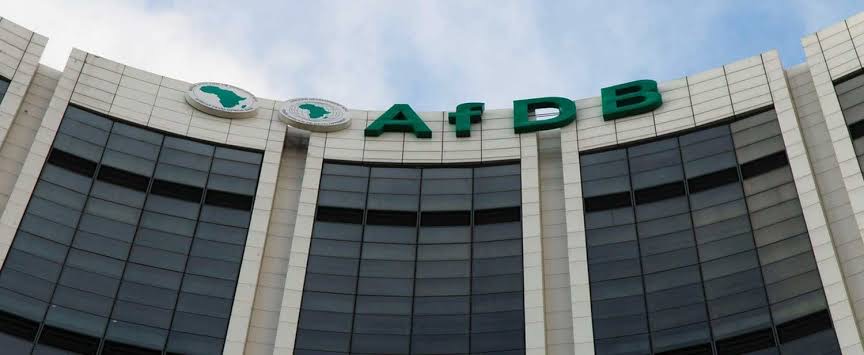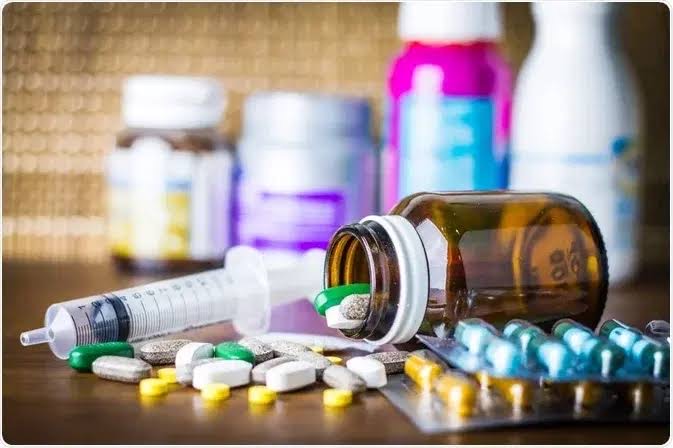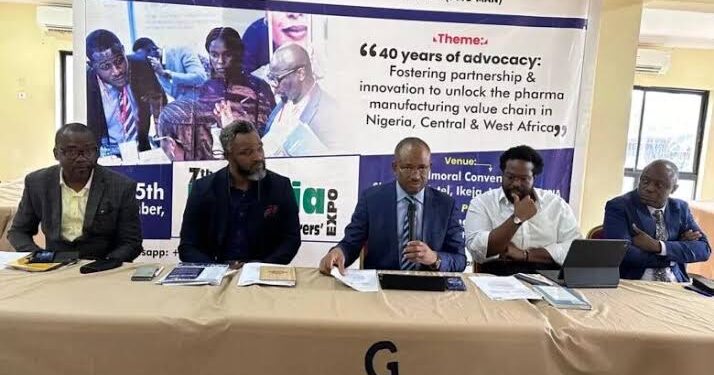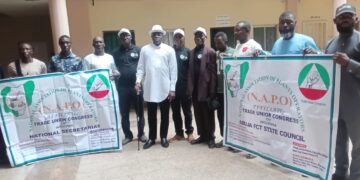Nigerian pharmaceutical companies are increasing investments and expanding their operations to capitalize on growing local opportunities.
The withdrawal of some foreign drug manufacturers and high prices for imported medicines have forced local companies to invest in the production of diagnostic kits and equipment to address the severe medical shortages facing Nigeria’s vast population.
Nigeria’s largest pharmaceutical company, Fidson Healthcare, in April, announced plans to raise 20 billion naira through the issuance of commercial papers to expand into the treatment of childhood cancer, hypertension, and cardiac diseases such as diabetes and asthma.
Fidson was the first company to establish domestic ampoule production in Nigeria. This expertise enabled it to seamlessly take over the manufacturing of GSK’s over-the-counter products when GSK withdrew from the Nigerian market.

Kaduna-based pharmaceutical manufacturer Ama Medical Manufacturing Limited expanded its operations in March with the opening of a second building of its 10 million IV infusion facility. The new facility will focus on the production of solid oral formulations, stem cells, and blood products.
To take advantage of the African Continental Free Trade Area (AfCFTA), Ama invested in form-fill-seal (FFS) technology. This advanced European automation will enable the company to manufacture 250ml formats of saline, 4.3% dextrose saline, and 5% dextrose, expanding its reach across Africa.
Additionally, Swiss Pharma Nigeria Limited (Swipha) received approval from the World Health Organization (WHO) for the development of an antimalarial drug for pregnant women, marking the company’s second prequalification in two years.
About a dozen pharmaceutical companies are working with the National Health Insurance Agency to source products from low- to medium-risk companies with Good Manufacturing Practice Certificates and to sell 33 products for health insurance purposes.
In 2019, Juhel Nigeria purchased two blow-fill-seal (BFS) machines worth hundreds of thousands of dollars.
The facility is helping the pharmaceutical company produce a new oxytocin injection for pregnant women, the first of its kind in Africa.
Moji Adeyeye, Director-General of the National Food and Drug Administration and Control Agency (NAFDAC), said these increased investments have increased domestic pharmaceutical production by 30% to nearly 40%.
“Local manufacturing is not just access, but access to quality medicines. When we started our 5+5 policy to shift from imports to local manufacturing, manufacturers stepped up. And when we now think of how much we are producing locally, it is no longer 30 percent; it is close to 40 percent,” the Director-General said at the 7th Nigerian Pharmaceutical Manufacturing Expo 2024 in Lagos.
More than 20 newly registered local pharmaceutical manufacturers have established WHO-compliant facilities in Nigeria, increasing the number of active local FPP manufacturers by 12 percent, ensuring a steady supply of quality essential medicines, Adeyeye previously announced.
As of February 2024, 143 applications for regulatory review and approval of new pharmaceutical facilities have been received, with 73 percent receiving approval from regulators to begin construction.
However, the devaluation of the naira has caused setbacks for most of the 105 companies that received this approval, with only 35 percent having completed registration and in various stages of operation.

Chairman of the Pharmaceutical Manufacturers Group of the Association of Nigerian Manufacturers, Oluwatosin Jolayemi, said there are 120 active companies in the group keen to invest in expanding pharmaceutical manufacturing capacity.
Most companies need huge capital and supportive policies to ensure market acceptance, access, and protection of these investments, Jolayemi stressed.
“To create a win-win situation for all stakeholders in this sector, the government, the populace, and the pharma companies must be intentional in crafting suitable trade, tax, regulatory, and fiscal policies that unlock the untapped value in the pharma space,” he said.
According to a McKinsey Insights analysis, the value of Nigeria’s pharmaceutical market could grow by about 9% annually to reach $3.6 billion by 2026, putting it on par with South Africa’s market. He also noted that Nigeria could contribute $1.9 billion to $2.2 billion in increased sales in the pharmaceutical sector, of which 55% would come from prescription drugs.
Another analysis by Fitch projects that Nigeria’s pharmaceutical market will grow at a compound annual growth rate of 7% from 2022 to 2033.
Speaking at the pharmaceutical expo, Padamashree Sampath, CEO of the African Pharmaceutical Technology Foundation (APTF) in Kigali, said for the sector to reach its full potential, it needs to work towards producing 50 percent of its production domestically by 2034.
She cited the $3 billion Pharmaceutical Action Plan as part of the financing options offered by the African Development Bank (AFDB) to modernize Africa’s pharmaceutical industry and support the production of essential medicines and vaccines.
The AFDB is also investing another $3 billion in strengthening health infrastructure as part of its Quality Health Infrastructure in Africa strategy, she added, noting that these efforts are aimed at supporting the African Union’s (AU) plan to produce 60 percent of its health care and vaccines on the continent.
Sampath highlighted the challenges facing the sector, citing an APTF study that found that despite progress in local manufacturing, companies source less than 0.1 percent of their raw materials locally. More than 90 percent of these intermediate goods come from overseas, especially in India, China, and Europe.
At the same time, she noted that raw materials account for 70-80 percent of production costs, posing a major obstacle to competitive pricing.
“Supply chain limitations are among the numerous constraints. Some need diverse, direct, and specific interventions. APTF’s partnership with PMGMAN will work to support Nigeria in all possible ways to accelerate pharmaceutical productions in Nigeria,” she said.

































